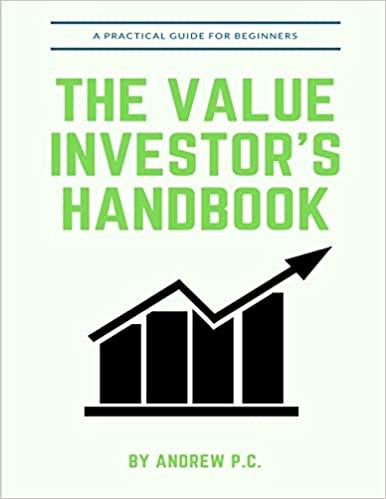Question
Modern capital structure theory began in 1958 when Professors Modigliani and Miller (MM) published a paper that proved under a restrictive set of assumptions that
Modern capital structure theory began in 1958 when Professors Modigliani and Miller (MM) published a paper that proved under a restrictive set of assumptions that a firm's value is unaffected by its capital structure. By indicating the conditions under which capital structure is irrelevant , they provided clues about what is required to make capital structure relevant and impact a firm's value. In 1963 they wrote a paper that included the impact of corporate taxes on capital structure. With the tax deductibility of interest payments, they concluded that an optimal capital structure consisted of 100% debt.
However, MM assumed there are no bankruptcy costs but firms do go bankrupt and bankruptcy costs are high. Bankruptcy-related problems are likely to increase the more debt a firm has in its capital structure. Therefore, bankruptcy costs discourage firms from using debt in excessive levels. This led to the development of the tradeoff theory, which states that firms trade off the tax benefits of debt financing against problems caused by potential bankruptcy.
Signaling theory recognizes that investors and managers do not have the same information regarding a firm's prospects. We would expect a firm with very favorable prospects to avoid selling stock, and to instead raise any required new capital by using new debt, even if this moved its debt ratio beyond its target level.
The pecking order theory states that managers have a preferred sequence of raising capital that impacts their capital structure decisions. The preferred sequence is to raise capital first as blank .
Finally, the market timing theory states that when a company's stock is selling for a price different than its intrinsic value, the firm's managers can adjust the firm's capital structure to take advantage of the mispricing.
affected
relevant
principal dividend
pecking order market timing signaling
Pecking order Market timing Tradeoff
market timing tradeoff signaling
own funds, debt, then equity equity, debt, then own funds debt, equity, then own funds???
tradeoff signaling pecking order
Step by Step Solution
There are 3 Steps involved in it
Step: 1

Get Instant Access to Expert-Tailored Solutions
See step-by-step solutions with expert insights and AI powered tools for academic success
Step: 2

Step: 3

Ace Your Homework with AI
Get the answers you need in no time with our AI-driven, step-by-step assistance
Get Started


